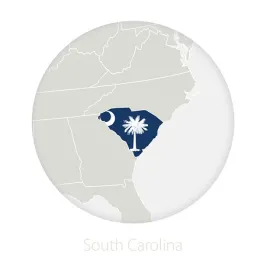On April 6, 2020, South Carolina Governor Henry McMaster issued Executive Order No. 2020-21 (E.O. 2020-21), which implemented a “home or work” mandate. The order directs South Carolina inhabitants to stay in their homes as of 5:00 p.m. on April 7, 2020, except for engaging in “Essential Business,” “Essential Activities,” or “Critical Infrastructure Operations.” The order also mandates that inhabitants practice social distancing and take every possible precaution to prevent the continued spread of COVID-19.
South Carolina was the 42nd state to adopt such an order and the final holdout on the East Coast. Only eight states remain (as of April 8, 2020) without a similar statewide order: Arkansas, Iowa, Nebraska, North Dakota, Oklahoma, South Dakota, Utah, and Wyoming.
“Essential Activities” Guidance
EO 2020-21 identifies the following as “essential activities”:
- Caring for, visiting, or transporting a family member, or traveling with a family member
- Obtaining necessary supplies and services for family or household members, including sundries, medical supplies, and safety, sanitation, and essential maintenance products
- Activities essential for health and safety, such as seeking medical, behavioral health, or emergency services
- Caring for pets
- Outdoor exercise or recreational activities, provided that social distancing is practiced between all persons who are not occupants of the same residence
- Attending religious services in a house of worship
- Traveling as required by law
Like the governors of several other states, such as Florida, Indiana, Louisiana, and Ohio, Governor McMaster included a religious service exemption. Such exceptions have become lightning rods for criticism because, despite severe restrictions on mass gatherings and travel, several religious organizations have performed large in-person services in recent weeks.
All of these activities are permitted with the caveat that they be conducted while adhering to the requirement to limit social interaction and practice “social distancing” in accordance with guidance from the U.S. Centers for Disease Control and Prevention (CDC).
“Critical Infrastructure Operations” Guidance
The order defined “Critical Infrastructure Operations” as follows:
- Individuals engaged in commercial transportation activities, including the transport of essential goods and products, such as food, water, medical supplies, fuels, agricultural products
- Airline employees
- Individuals engaged in military, healthcare, public safety, or emergency response operations, as well as any individuals engaged in operations identified in the S. Cybersecurity and Infrastructure Security Agency’s (CISA) March 28, 2020 memorandum
The CISA memorandum lists 16 broad operational categories of “Essential Critical Infrastructure Workers”:
- Chemical
- Commercial facilities
- Communications
- Critical manufacturing
- Dams
- Defense industrial base
- Emergency services
- Energy
- Financial services
- Food and agriculture
- Government facilities
- Healthcare and public health
- Information technology
- Nuclear reactors, materials, and waste
- Transportation systems
- Water and wastewater systems
“Essential Business” Guidance
Governor McMaster’s new executive order defines the kinds of “Essential Business” that may be engaged in by inhabitants of South Carolina by identifying what “essential business” does not include. The order allows persons to engage in business if it is not what had been defined in two prior executive orders as “non-essential” business.
These two executive orders (E.O. No. 2020-17 and E.O. No. 2020-18) combined to close four categories of “non-essential businesses,” including (1) entertainment venues and facilities; (2) recreational and athletic facilities and activities; (3) close-contact service providers such as salons; and (4) many retail stores, including furniture, clothing, sporting goods, books, and most department stores (excluding hardware and home-improvement businesses).
These executive orders allowed for “essential” retail stores to continue operating for the limited purpose of fulfilling online or telephone orders, or providing alternate means of purchasing or delivering products or services, provided that such measures were implemented consistent with effective “social distancing” guidance issued by state and federal public health and safety officials.
In the new executive order, Governor McMaster instructed businesses unsure about their essentiality to contact the South Carolina Department of Commerce, which will provide guidance. Requests for clarification may be submitted via the Department of Commerce’s website, the department’s taskforce email, or by telephone at (803)734-2873. The governor stated that the Department of Commerce will seek to have a 24-hour turnaround time, and businesses with questions should feel free to stay open while awaiting a response.
Other Business Requirements
EO 2020-21 also imposed several other restrictions on businesses:
- Emergency occupancy rate. Businesses must limit the number of customers allowed to simultaneously occupy the business premises, not to exceed the lesser of 5 customers per 1,000 feet of retail space or 20 percent of the occupancy limit as determined by the fire marshal.
- Social distancing practices. Businesses cannot knowingly allow customers, patrons, or other guests to congregate within six feet of one another, except family units.
- Businesses must implement all reasonable steps to comply with COVID-19 sanitation guidelines as promulgated by health authorities.
Lodging Restrictions
Meanwhile, the governor also issued E.O. No. 2020-19, effective as of 5:00 p.m. on April 3, 2020, directed at “lodging” businesses. The order prohibits all new reservations or bookings of short-term rentals, vacation rentals, or other lodging accommodations or operations in South Carolina by individuals residing in or traveling from any geographic area identified in a CDC travel advisory or other CDC notice as a location with extensive community transmission of COVID-19 (specifically including the Tri-State Area of New York, New Jersey, and Connecticut). The lodging ban applies to any conceivable place that accommodates travelers for consideration. The vacation rental or other short-term rental property ban prohibits rentals for less time than 90 days if the property is advertised or held out to the public as a place regularly rented to guests, or held out to the public at any point during the preceding 30 days (from March 4, 2020, to continue until further notice).
However, EO 2020-19 does not prohibit lodging businesses from providing lodging to the following:
-
Individuals operating commercial vehicles transporting essential goods and products (with examples given); individuals employed by airlines; and individuals otherwise engaged in commercial transportation activities
-
Individuals performing or assisting with military, healthcare, public safety, or emergency response operations, as well as any other operations or services identified by CISA in its memorandum, or any future amendments or supplements thereto, as essential to continued critical infrastructure viability
Across South Carolina, all 46 of the state’s counties have confirmed COVID-19 cases, and as of April 8, 2020, private and public laboratories have reported more than 2,000 cases of COVID-19, according to the state’s Department of Health and Environmental Control.




 />i
/>i

